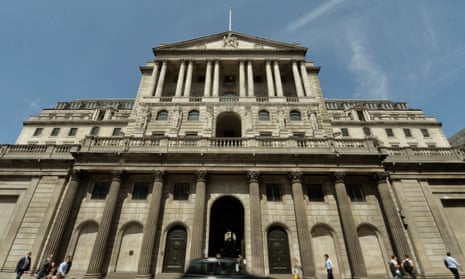A senior official at the Bank of England has warned of the risk of bowing to pressure from lobbyists in the banking industry who want to see a relaxation of rules introduced since the banking crisis.
Paul Fisher, one of the most senior regulators at the Bank, said the new regime – which will force banks to ringfence their high street operations from any investment banking operations – needed be tested during another crisis before any watering down took place.
“We probably won’t know for sure just how effective the new regime is until we reach another crisis. Meanwhile, we need to guard against the reforms being rolled back as a result of a period without crisis. Let’s complete the programme, give it time to work, be supportive of growth wherever we can, and be open-minded about change,” Fisher told an audience in London.
“But let’s also be cautious about the siren voices of financial self-interest that were partly responsible for luring us on the rocks in the first place,” he added.
Speaking eight years after the collapse of Lehman Brothers in the US had repercussions for the global financial system, Fisher said the “consequences of the great financial crisis were so large, so negative for millions of people around the globe in terms of unemployment and reduced incomes, that more regulation, in every direction has been a necessary response”.
“Over time one may learn where the reforms can be eased, where they need to be tightened, or whether other policies need to be introduced to offset any unwanted side effects. Let me restate what has been said before – the authorities generally, including regulators, do not want the stability of the graveyard,” said Fisher, who is deputy head of the Prudential Regulation Authority, the Bank’s regulatory arm.
“But just as we don’t want growth generated by firms causing excess pollution, nor do we want it sustained by financial firms that take excessive risks with other people’s money,” he said.
The collapse of Lehman led to the bailout of Royal Bank of Scotland and Lloyds Banking Group and resulted in a clamour for rules to try to prevent banks being “too big to fail”. Fisher said the problem of “too big to fail” had not been solved but it was now less likely that taxpayers would need to step in to prevent troubled banks from collapsing.
Fisher pointed to changes in the quality and total of capital that banks must hold, and the stress tests being conducted annually on banks to determine their financial health.
